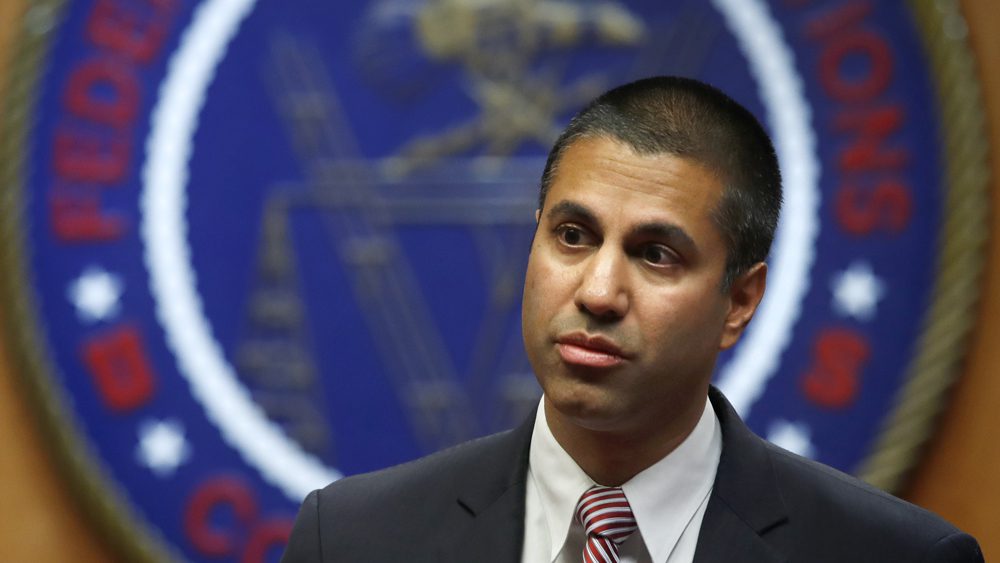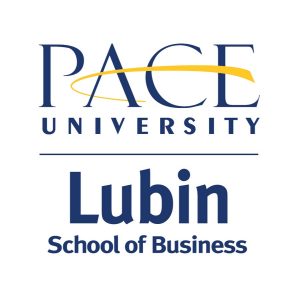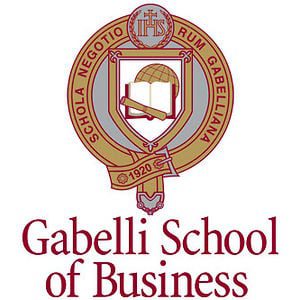The Best Careers in NYC to Ring in 2020

It has been a while since this column checked to see what opportunities are available for MBA students in the Big Apple. A global center of finance and culture, New York City offers many opportunities for ambitious MBAs. This week’s dispatch only covers jobs that have been posted within the last week.
Continue reading…New Jobs at the Biggest Players in Telecom

Telecommunications firms help keep people connected. Did you know that 781 billion text messages are sent every month in the United States? That means that, on average, Americans send and receive about 94 text messages per day. More importantly, did you know that an estimated 240 million calls are made to 9-1-1 in the U.S. each year? In many areas, 80 percent of these calls are from mobile devices. These numbers put into perspective the importance of telecommunications, and the need for continued innovation in those fields. Continue reading…
New MBA Jobs at the World’s Top Mass Media & Telecom Firms

The world is more connected that ever before. What’s possibly even crazier is how many of the channels, services, and providers of these communication streams are all run by a handful of powerful companies. This week, we’re taking a look at some exciting new MBA jobs in the world’s largest mass media and telecom firms. If you’re looking to help companies innovate in order to help people connect and communicate with one another, these new MBA jobs are for you.
Monday Links: New MBA Jobs at Wolters Kluwer, BMO, and More

The ultimate goal of all MBA candidates is to get the best possible job following graduation. With so many great companies recruiting so many talented MBAs, it’s hard to stay on top of all the MBA jobs out there! Here’s a selection of some of the top open positions out there right now:
The Potential Impacts of Net Neutrality on Higher Education

F.C.C. Chairman Ajit Pai’s decision last week to repeal Obama-era net neutrality regulations, which inhibited ISPs from paid prioritization and interfering with users’ online experiences, could have widespread implications beyond the speed of your Netflix stream.
A host of critics argue that the controversial new initiative essentially deregulates the Internet from a governmental vantage point and gives ISPs (internet service providers) free reign to control what you see as they see fit. That could mean offering fast lanes to the highest bidder—at the consumer’s expense, naturally—or censoring any content that might be remotely critical of, say, AT&T’s political position.
Pai believes the repeal will foster competition and ultimately benefit consumers. “Broadband providers will have more incentive to build networks, especially to underserved areas,” he told the NY Times after the F.C.C. cast its final votes on December 14. The vote split directly on party lines, with Republican commissioners winning by a count of 3-2.
After the vote was concluded, Mignon Clyburn, one of the two Democratic commissioners to vote no on the new provisions, said, “I dissent, because I am among the millions outraged. “Outraged, because the F.C.C. pulls its own teeth, abdicating responsibility to protect the nation’s broadband consumers.”

F.C.C. Chairman Ajit Pai. Photo via AP/Jacquelyn Martin
In terms of public relations, ISPs appear conflicted about which foot to lead with. According to Wired, in the months leading up to the repeal, Comcast publicly shared a net neutrality pledge and then quietly removed it once the votes were concluded, while Verizon promised not to open up fast lanes when it “already blocks mobile subscribers from accessing high-resolution video streams unless they upgrade to more expensive plans.”
It’s clear that this F.C.C. decision is a crippling blow to the utopian promise of the Internet, whose innovations were outgrowths of a level playing field. Netflix voiced disappointment last Friday, in which the company said “innovators, large and small, to oppose this misguided F.C.C. order.”
Consumer advocates are deeply concerned about the repeal’s impact on higher education, particularly in a moment where educators increasingly rely on YouTube lectures, video-chat services, and distance learning applications for their curricula.
There’s a scene in Werner Herzog’s 2016 documentary“Lo and Behold” in which he interviews Udacity founder and Stanford professor Sebastian Thrun about a robotics seminar, which was made available to the general public through open courseware technology. Two-hundred Stanford students enrolled in the class along with 160,000 students from the “open world.” Upon realizing that the highest achieving Stanford student ranked 413rd overall, Thrun remarked, “My God, for every great Stanford student, there are 412 amazingly great, even better students in the world.”
In an interview with Wired, Washington State University Vancouver’s Mike Caulfield explains, “Killing net neutrality will throw us back to the Dark Ages and the people that is likely to hurt most are actually rural populations that don’t have face-to-face access.”
In an interview with EdWeek, Consortium for School Networking Executive Director Keith Krueger explained matter-of-factly, “School systems will now face a bleak reality: reduced choices, higher prices, and fewer innovative tools.”
The introduction of “slow lanes” has the potential to impact peer-to-peer interactions like videoconferencing, as well as institution-wide adoptions of cloud-based models. Caufield explains, “Science or programming courses might require students to download large data sets that, if relegated to a slow lane, would take a prohibitive amount of time to download, or could help burn through data caps.”
There is a more pervasive worry that “education companies that rely on relatively fast delivery of content to schools could lose out to deep-pocketed vendors that can afford to pay internet service providers more for faster, higher-quality access,” according to an EdWeek article.
In a captivating Medium entry, Tressie McMillan Cottom, a sociology professor at Virginia Commonwealth University and faculty associate at the Berkman Center for Internet & Society, says that while changes to how Americans use the internet might not change right away, it will likely affect the amount of resources available to students who utilize online education.
“Online education was built, and sold to stakeholders, on the premise of affordable, accessible internet access,” Cottom writes.
“The concern is that companies tend to want to maximize profit. It isn’t hard to imagine telecom companies allowing companies who can pay for premium internet space to skew what is and is not available on the internet.”
Cottom telegraphs what she calls the “doomsday predictions”: charging escalating prices for basic internet consumption, leaving poorer, disadvantaged users with worse options. And that, Cottom explains, doesn’t even consider the potential socio-political ramifications. “For many, the end of net neutrality also means the regulation-by-capital of online spaces where minority groups shut out of traditional media, politics, and economies have thrived (albeit always at the precipice of precarity),” she says.
Other critics, such as University of Michigan professor Kentaro Toyama, in an recent interview with EdSurge, says that the issue was not the repeal vote, but the “already eroding” nature of the internet itself. “Technical systems are predominantly paid for and operated by private companies, which exert a lot of control,” he notes.
Indeed, before the vote, some of the largest ISPs were already practicing speed-throttling tactics, such as Comcast’s “unlimited” phone data plans that slow down after 20GB of use, and Verizon, which was caught earlier this year slowing down user speed.
But when it comes to higher education, Toyama is not worried. “Though there might be some marginal impact on the degree to which online courses like mine could be viewed by any given student, it is unlikely to be at a level noticeable by the average user,” he says.
The F.C.C. responded in defense of their new initiative that ISPs will have to publicly disclose any practices that block or throttle access to online resources, but Ed-tech advocates believe these so-called “transparency requirements” will simply force education officials to accept whatever terms are placed in front of them.
Looking At New York City’s Best MBA Return on Investment, Pt. II

New York City is an obvious choice for budding entrepreneurs, consultants, and financiers to find their footing.
Manhattan is regularly called a playground for the wealthy, with a 2016 Newsweek article playfully and indiscriminately dubbing rich people New York’s new urban blight. So, if you’re one of the millions of people hopping into New York to extract its cultural and financial resources for personal gain before migrating to some more humane province, why not do an MBA there while you’re at it?
The proximity of New York business schools to the city’s wealth of opportunities means that MBAs have a kind of access that make b-schoolers elsewhere in the country—and the world—salivate. New York’s matchless combination of industry, culture, and strategic location means that any one of the numerous business schools that populate the region will give MBAs a veritable nitrous boost when it comes to post-graduation job placement. In fact, earlier this month we covered five other NYC MBA programs that give graduates the best return-on-investment.
You’ve surveyed the best so let’s try the rest! While Part 1 was populated by the most elite and therefore more expensive MBA options in the region, Part 2 focuses on New York programs that are more practical choices if you’re doing business school on a budget. These programs tend to offer comparatively smaller returns-on-investment but the advantage is their affordability.
So, let’s take a deeper dive into four more New York-area MBA programs that offer the best returns-on-investment for graduates.

Lubin School of Business — Pace University
The Lubin School of Business counts Hearst Magazines president Michael Clinton ’83, HBO Chairman and CEO William C. Nelson ’75, and former Chairman and CEO Ivan G. Seidenberg ’81 among its notable alumni. With tuition for Lubin’s two-year full-time MBA priced at $71,340, the program qualifies one of the mid-range options on our list. MBAs graduate with an average salary-to-debt ratio of 68 percent culled from average debt of $44,076, according to U.S. News & World Report, and an average base salary of $64,425.

Gabelli School of Business — Fordham University
Notable Gabelli School of Business notable alumni include UnitedHealth Group CEO Stephen J. Hemsley, ’74; former JP Morgan CEO Maria Elena Lagomasino ’77; Countrywide Financial Corp Co-Funder, Chairman, and CEO Angelo R. Mozilo ’60; and Empresas Polar CEO Lorenzo Mendoza. At $87,807 for its two-year full-time MBA, Gabelli’s tuition is among the priciest on our list but the handsome 53 percent salary-to-debt ratio makes up for it. MBAs graduate with an average debt of $51,870 and go on to earn an average base salary of $97,404.

Tobin School of Business — St. John’s University
The Tobin School of Business at St. John’s University is one of the most affordable MBA programs on our list, with tuition priced at $43,740 for its two-year full-time MBA. Tobin MBAs graduate with an average debt of $28,291, which when set against their $59,276 average base salary, yielding a 48 percent salary-to-debt ratio.

Stevens Institute of Technology School of Business
Recent noteworthy employers of the Stevens Institute of Technology School of Business MBAs include ExxonMobil, Goldman Sachs, Johnson & Johnson, JPMorgan Chase, L’Oreal, Lockheed Martin, Microsoft, Tishman Realty & Construction Co., Turner Construction, UBS Financial, and Verizon. Although tuition is priced at a competitive $68,988 for its two-year full-time MBA, Stevens actually has the highest salary-to-debt ratio of any school on our list, at 72%. Stevens MBAs graduate with an average debt of $48,244, according to CNN Money, and go on to earn an average base salary of $67,100.
